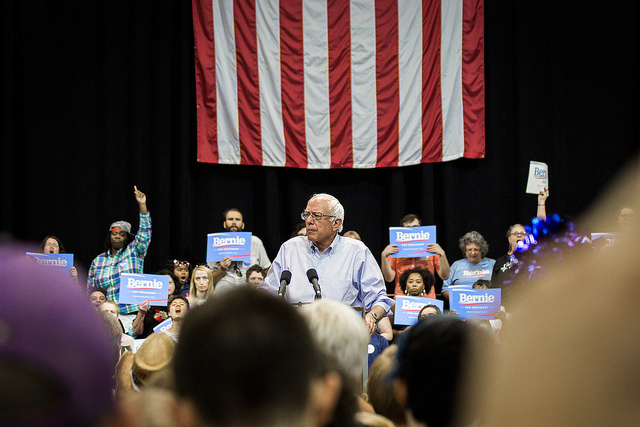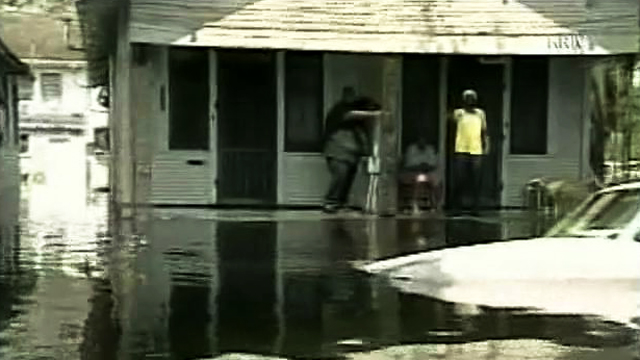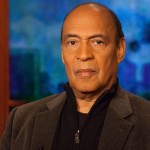This post first appeared at Common Dreams.
The 10th anniversary of the devastation of New Orleans in the aftermath of Hurricane Katrina has been an occasion for reflection on that horrific event and the state of the city’s recovery. Much of that commemoration, especially locally, has centered on the theme of resilience. This is understandable; in many ways the city has recovered, and many people have sacrificed much to make that recovery happen. In a city so dependent economically on tourism it is important to stress that New Orleans remains a desirable destination. It also makes sense that local officials, and New Orleanians generally, would want to celebrate and pat themselves on the back a bit about how far the city has come since the terrible days, months, and, for many people, years, after August 29, 2005.
Meanwhile, most Americans — and certainly most New Orleanians — are unable to find jobs with decent wages, benefits and security at the same time as the shrinking public sector limits their ability to access affordable housing, health care and education. It is precisely this rapidly growing inequality, or what Bernie Sanders has referred to as “the great moral issue of our time,” that his campaign for president seeks to address. It is a message and commitment that should resonate in southern Louisiana. New Orleans now has the second-worst income inequality of any major city in the country.
What separates New Orleans from other cities is that the attack on public investment, and the promotion of an unregulated private sector, contributed to the greatest disaster in US history. Calls to fix the levees and invest in infrastructure prior to Katrina went unheeded, as did warnings from scientists that climate change would lead to larger storms, and that the destruction of Louisiana wetlands had weakened the region’s natural defenses. What was needed was precisely what powerful interests would not allow: adequate public investment in the levee system; state regulations to protect our wetlands; and a public commitment to housing, healthcare, education and the economy that would have left more of us prepared for a disaster in the first place.
And yet, if Hurricane Katrina delivered a hard lesson about the consequences of gutting public investment, we certainly did not apply this wisdom to the recovery. Instead, we doubled down. Dismantling the public sector has been the guiding mantra for those who have controlled the post-storm recovery. The chaos of Katrina not only provided cover for powerful interests to slash public services at a much faster rate but allowed them to pass off such policies as much needed “reform” (and then sell it as a “model” for the rest of the country). This sleight of hand has had disastrous results. Resilience only gets you so far in the absence of resources, a coherent plan, and a public commitment.
This has a produced a city that is more than ever defined by a real estate market that not only reflects inequality but drives it. It is not simply that developers have made millions and now largely call the shots. It has been a much more intimate process, creating deeply felt divisions along race and class lines. Those who live in “certain” neighborhoods and own their homes have benefitted considerably from the “upside” of upscaling redevelopment — rapidly rising house prices, outrageous rents and a gastro pub or yoga studio on every corner. But the vast majority of people have been left out of a shallow recovery — driven by real estate, tourism and start-ups — that has created a city that is more expensive and less livable for most citizens.
Education was not far behind housing. It started with our teachers, who were demonized, fired and then demonized again for trying to hold together a public education system that was never adequately supported in the first place. Then, like housing, education was largely freed of city and state mandates, thereby allowing “reformers” and “entrepreneurs,” most of whom had little experience or expertise, free reign over what is perhaps our most vital public service. Again, the results have not been entirely unpredictable, even if overzealous advocates have often manipulated the data to demonstrate the “success” of the charter movement. Educational performance has not improved overall in New Orleans, and has actually gotten worse for the most marginalized.
This is the vision that the likes of Scott Walker, Bruce Rauner and Louisiana’s own Bobby Jindal, the sociopathic Muppet who occasionally visits the governor’s mansion, hold for the United States as a whole. And that fact ties this moment of commemoration and reflection on the horror and depredation of Katrina’s aftermath directly to the crossroads we confront as we prepare for the 2016 elections.
The political arrangements that led to Katrina’s disastrous aftermath were bipartisan and neoliberal. Democrats as well as Republicans, at local, state and national levels, for decades bled the public sector, sold off or abandoned public goods, and mortgaged the environment — in south Louisiana in particular the wetlands that protected the New Orleans area from storm surge — to corporate interests, all justified with fairy tales about efficiency of the market or doing more with less. Assaults on the living standards of poor and working people persisted unabated without regard to whether Democrats or Republicans were in office.
In that light, if New Orleans provides a lesson for the rest of the country, it is that we cannot afford the rule of bipartisan neoliberalism any longer; most of us never could afford it really, but the stakes grow higher all the time. We need a substantive, radical change in the center of gravity of American political life, and we believe that New Orleans’s experience in particular underscores that Bernie Sanders is the only candidate running who understands that fact of political life, and he is the only candidate who has lived in accordance with that understanding during the course of his political career.

Bernie Sanders speaking at a rally last month in New Orleans’ Pontchartrain Center (Credit: Nick Solari / Flickr / CC 2.0)
Sanders is the only candidate running for president who has consistently fought for the kinds of policies that New Orleans so desperately required prior to and during Katrina, and that it needs now more than ever.
As more Americans have found out who Bernie Sanders is, and have begun to understand what he stands for, turnouts at his rallies have soared along with his poll numbers. His campaign platform is nothing short of a political revolution, and include the very kinds of policies that New Orleans so desperately needs: including a truly universal health care, a minimum wage of $15, expanded rights for workers, free tuition at public universities, and reducing the income gap between the rich and poor. He is, quite literally, the only candidate talking seriously about the issues that matter the most to most New Orleanians.
As we in the city and others elsewhere commemorate the anniversary of Katrina, it would be good to consider that Bernie Sanders is the only presidential aspirant calling for policies that would have prevented that disaster from occurring on anywhere near the scale on which it did, would have made recovery from it more coherent, rational, just and inclusive. And that is another lesson to take from this moment.
We should take the moment to remember and reflect on the past — from the levees’ failure through the ordeals of the months and years since, and, for those who can recall, what New Orleans was before August 29, 2005. Then we should clear our heads and recognize that what we need for New Orleans, south Louisiana, and the country as a whole are precisely the kinds of policies, priorities, and social vision Bernie Sanders has advanced. The siren call of fear, always stoked by demagogues, threatens to distract us from the crucial need for public investment and a political system that puts people before profits. We should struggle to defeat that threat, and the only way to do so is by offering a clear and compelling alternative. The great promise of the Sanders campaign is that it not only presents such an alternative but also provides a vehicle for building the movement necessary to make it reality.
The views expressed in this post are the authors’ alone, and presented here to offer a variety of perspectives to our readers. This work is licensed under a Creative Commons Attribution-Share Alike 3.0 License.
Adolph Reed Jr. on the “Surrender” of America’s Liberals





